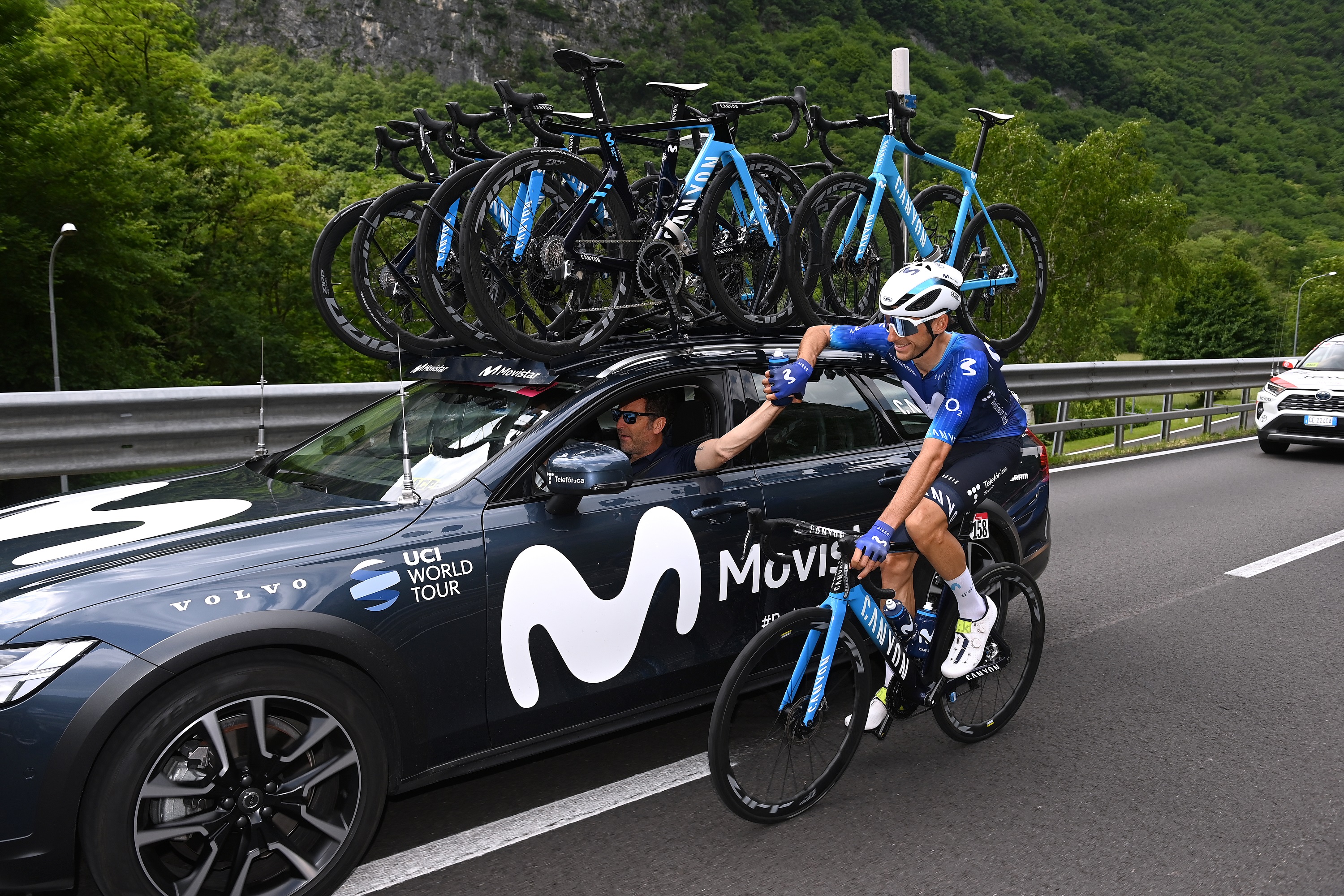
WorldTour cycling teams will have to halve their carbon emissions by 2027 if they want a licence to compete in cycling’s upper echelons.
As part of the sport’s attempts to become carbon neutral by 2030, all of the men’s and women’s teams who are part of professional cycling’s top table will only have their permit renewed if they are proven to be more sustainable and on track to being carbon neutral in 2030.
In arguably the most significant measure so far taken by the UCI, the sport’s governing body, in trying to reduce cycle racing’s collective carbon footprint, teams face a fight over the next four years to bring to an end an era of limitless travelling and to set in stone measures that will compensate for unavoidable emissions.
Speaking exclusively to Cycling Weekly, the UCI president David Lappartient explained: “It will be mandatory for them [WorldTour teams] to be carbon neutral in 2030, with the goal to reduce their emissions by 50% in 2027 compared to 2019. After 2027 this will be mandatory to even keen a WorldTour licence.
“In front of me is the [UCI’s handbook on future direction] Agenda 2030 and the goals are the same for the UCI as they are for the stakeholders: we have to reduce by 50% by 2027 and be at zero by 2030. This will be certified by independent experts.”
Currently there are 18 men’s WorldTour teams and 15 in the equivalent women’s peloton, with several more teams vying to be included in the uppermost tier.
Both the men’s and women’s divisions operate a controversial promotion-relegation system based on the performances of teams over a three-year period, but they will only be granted a licence should they also meet financial, moral and ethical criteria.
In recent times the spotlight has been shone ever brighter on cycle racing’s emissions, with questions relating to the amount of vehicles that follow a race, the disjointed geographical nature of the calendar and the sometimes huge distances between stages.
Cycling Weekly understands that teams have been encouraged by the UCI to invest in cleaner modes of transport, such as electrical cars and buses, as well as by installing solar panels on team headquarters.
Lappartient did not shy away from the fact that not every team was happy with the measures being implemented, but drew a red line by saying that the goalposts would not be moved as the sport seeks a cleaner future.
He added: “As we speak today, some of them are on board, some of them are more [into] greenwashing, [but] we really want to share the same vision. That’s why at the last WorldTour seminar, we had a presentation about this to bring everybody on board to say, reducing emissions. Look, it’s something that whether you like it or not, you have to be part of."
Put to him that the sport has to take meaningful action and not just create a forest of trees as previously mooted, Lappartient said: “Planting trees is for what you can’t avoid. First of all you have to reduce. We don’t only want to have compensation by planting trees.”
The full interview with UCI president David Lappartient on sustainability will be published in a September edition of Cycling Weekly magazine.







